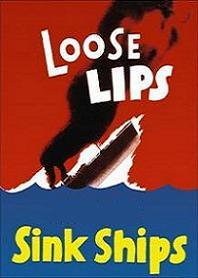Loose Lips Sink Ships.
The classified ad in San Francisco's Bay Guardian was straight out of a doper's dream: Marijuana Research Subjects Wanted. Sure, why not?! In those days—late 1975—it seemed surprising that the U.S. government was still trying to figure out the physiological effects of cannabis, but if they were willing to pay folks to smoke their Mississippi-grown weed, I certainly didn't want to be left out.
Besides, the ongoing studies were taking place in Langley Porter Neuropsychiatric Institute, a place made legendary by The Electric Kool-Aid Acid Test, Tom Wolfe's 1967 opus. Several passages in his book documented the adventures of fellow writer Ken Kesey, who spent a significant amount of time in Langley Porter, gobbling down the government's LSD. Ken was one of our generation's heroes, and not just for writing One Flew Over the Cuckoo's Nest.
My screening session consisted of being locked inside a small airtight room, while an erstwhile grad student sat in a nearby chair, to ensure that I practiced good smoking technique with one of the program's fat, U.S. Prime, machine-rolled doobies. He had nothing to do except watch me, and I had nothing to do except smoke, so we struck up a dialogue which gradually became quite fascinating. As the drug gained traction, I kept forgetting where we were, and often attempted to pass the joint over to him, out of simple courtesy. Since he was obliged to enforce the experiment's protocol, he always turned down my proffered toke, but a contact high was unavoidable in that tiny room, and the longing in his eyes grew more and more pronounced.
For insurance reasons, the experiment itself required a commitment to living inside Langley Porter's supervised hospital psych ward, so I secured a 30-day leave of absence from my day job. Getting wasted was dirty work, but somebody had to do it. During the first week, the four of us enrolled in the research study were given placebo pills every six hours, around the clock. We weren't supposed to know they were fake, but nobody was getting off, so we shrugged our shoulders and tried to settle into the mental facility's daily routine: screams in the night, blood on the bathroom walls from failed suicide attempts, zombie-like patients who wondered why we chose to live among them.
Then there were the daily 14-page physiological self-evaluations, which included hundreds of questions like: "Is your mouth wet or dry? Do your feet feel cold or warm? Are your lips loose or tight?" It took nearly an hour to diligently complete the entire form, and the question about lips came near the end, when everything began to seem quite absurd, so I always added these words: Loose Lips Sink Ships. I figured this reference to a common WWII security slogan, warning citizens against revealing unnecessary details to strangers, might amuse the poor graduate students who were forced to process these godawful forms. But a few days later, one of them hesitantly pulled me aside, whispering, "Is this some kind of code?"
Following a week of baseline physical tests, the placebo pills were suddenly replaced with real THC. Yaaay! I started to relax, and interact with the non-study patients. They, in turn, began to seem less disturbed, less strange, less like... The Other. I even talked to the 14-year-old boy who mutely followed me around the pool table, like a puppy dog. After a couple of weeks, we were old buddies, even though he never said anything in return. I slowly became aware of the patients he liked and disliked, from subtle changes in his body language, and he began to smile at my lame jokes. During the fourth week, his father visited - and spent an hour berating him, inside his room. I overheard the monologue through an open door, and winced.
Then the father came to visit me, beside the pool table: "He hasn't smiled in three years! How did you do it?"
The nurses must have said something. I was caught off-guard, but managed to blurt out, "I dunno. I just try to listen to him."
"But he never speaks!"
"I know."
 1st pub
1st pubPowered by Blogger